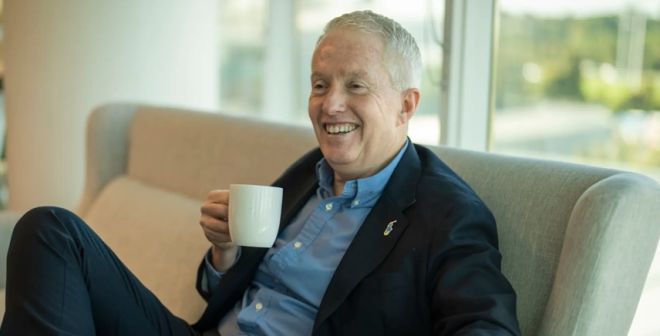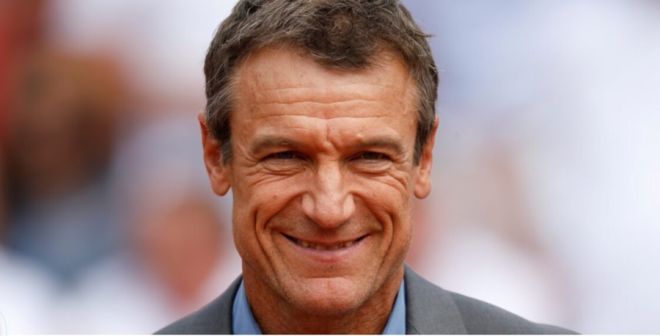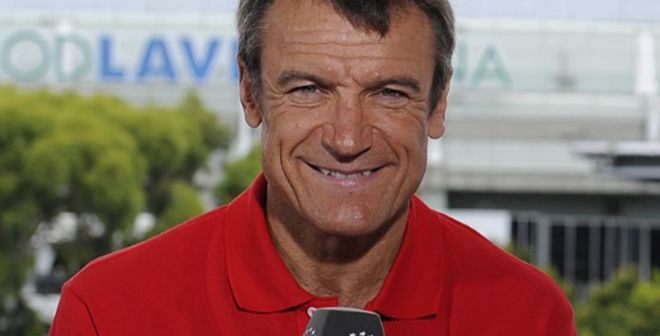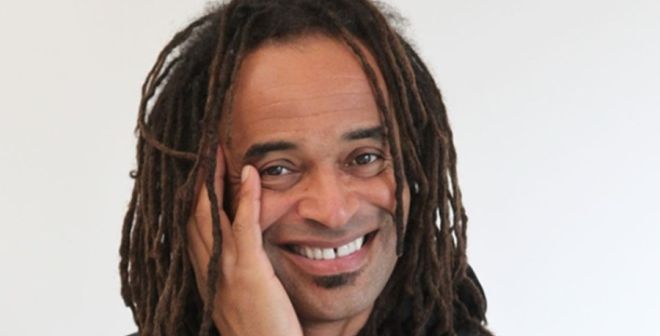Craig Tiley has steered Tennis Australia through some very difficult financial times as the pandemic disrupted the world, but for Mr. Tiley the focus was getting through those times and building tennis back up, managing politics and looking to the future.
PART 2
Q. Why do you, and when I say "you," I mean Tennis Australia, choose to invest in tournaments outside the regular sphere or your own backyard with events like the Laver Cup, where we are speaking or United Cup?
CRAIG TILEY: It's a good question. We have taken the position look, at the end of the day we just try to do the best we can. You know that we are a player focused business, player focused slam. We'll always try and maximize our compensation to the playing group. In fact, this will be the second year we'll pay over $100 million in prize money, excluding the Laver Cup and others.
Our summer, Tennis Australia underwrites the entire summer of tennis in Australia, and that is an event in Adelaide, an event in Brisbane, the United Cup in Perth and in Sydney, an event in Canberra, an event in Hobart, men and women. These are top level events, 500 level events. Just below a 1000 level event. The United Cup is at that level. It's more prize money than a Masters 1000. Then of course the Australian Open. So over $100 million Tennis Australia itself puts in.
The summer of tennis, we lose money. So, the investment that we make in compensating the players, we don't make any profit during the summer of tennis. It's a multi million dollar loss we make in the summer of tennis. That's offset by the benefit of the Australian Open, but we believe it's critically important to invest in the player experience over the whole summer. That's the five weeks in January, or four weeks in January.
Outside of that, we love the game. Rod Laver is one of our greats, probably "the" greatest. I made a commitment to him that anything he wanted to get involved in we were going to invest and support him. Some of the greats of the game that didn't make a big living, we support them financially where we can.
This was an opportunity to co create the Laver Cup with TEAM8, with Roger Federer and the team, and Darren Pearce (at Tennis Australia) and his team, they produce it, they run it, we have teams that operationally work closely with the Laver Cup team and Steve (Zaks – Tournament Director) does a great job.
I think we love this event and love our investment and our contribution to this event, and players are benefitting.
Q. You spoke just now about the financial aspect. Tennis Australia went through hell a few years ago during the COVID crisis. What's the health state of finances with Tennis Australia?
CRAIG TILEY: That's a very difficult question there. Because we, unlike the other three slams, we don't own any infrastructure. We lease it from the government. Over $50 million a year we pay in lease fees. We lease that venue.
We had reserves set aside for a rainy day, but we didn't think the rainy day was going to be a pandemic. We completely exhausted our reserves. We don't have a cent left. We had to take a loan from the government. It was a choice between the government and the bank.
We are in the process of repaying that, but I made a commitment, and our team, we made a commitment. Our leadership team made a commitment. We said three things. No. 1 is that we were going to ensure the financial viability of the organization. No. 2, we were going to make sure that everyone was safe in their jobs, create a safe working place. No. 3, we were going to live by the values which were set forward before around excellence and collaboration and humility.
Going into COVID, we agreed we'd all do that. Coming out of COVID, we achieved all that. But now, for quite a long period of time, we have to pay off that debt because racked up a fair bit of debt to keep the event going.
A lot of people said don't run the Australian Open. It will be cheaper. If you don't run the Australian Open, everyone is out of a job, there's no payment to players, there's no event, you've got to rebuild it. We made a decision under those circumstances two very difficult years to run it.
I'm very glad we did, because we now continue ... we are going back into a growth stage, but we've got some debts to pay to get us to a point where we planned to be pre COVID. We haven't reduced prize money. We have kept people in a job. We've reduced our costs across the board. We've got a team that's doing a great job in building revenue for the future.
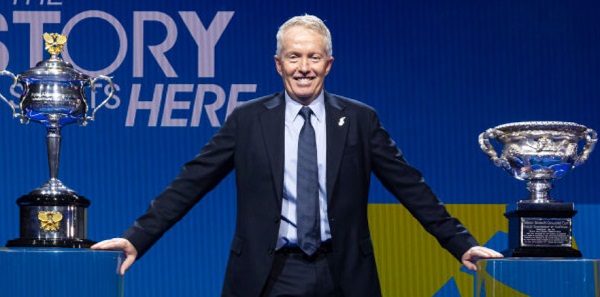
Q. I have known you a long time, from the coaching days right through to being head of Tennis Australia.
CRAIG TILEY: Sugar Circuit South Africa.
Q. Actually, yes. Beyond coaching days, yes. If you had to pinpoint a highlight of what you have achieved?
CRAIG TILEY: I think, career wise, I think there's a few I can think of. I think, you know, definitely the highlight is the loyalty of the people I work with. I love the people I work with. I think that's been a highlight.
I think the transformation of the Australian Open has been taking massive risks, which people said you shouldn't do, has been a highlight. Winning the NCAA college title, the team title, was definitely a highlight. I went back for the reunion last couple of weekends ago. So much fun seeing everyone. That's what's in front of mind now because of that.
I think being on the journey of the greats of the game, Serena Williams, Rafa Nadal, Roger Federer. Probably from an Australian point of view, highlight has to be Ash (Barty) winning the Australian Open.
Q. How do you deal with the politics?
CRAIG TILEY: Whoa, jeez. How long you got? A lot of politics in tennis.
Q. Oh, boy, is there ever.
CRAIG TILEY: Again, there is just too many entities. There is not a single vision to an outcome. We suboptimize ourselves. Amazing people, I always say, there is really smart people in the game, but somehow the passion, like, dumbs everyone down to not doing the right thing. Everyone is in that kind of boat to get the right outcomes.
Look, I think politics ruins the opportunities, and I think we've got to put past we have to do the best we can to get past the politics. It's all about what you're willing to give up. I think if you put a group of smart people in the room, you say, What's the first thing you're going to give up to get to a great outcome, everyone will eventually agree to that, but we haven't got to that point yet.
I do think we are getting closer to a situation, and it's not because of any one person, it's because the environment is forcing us to do that. The fans are calling out for change. The players are calling out for change. Those that run great events are calling out for change for the future. Partners, commercial partners, are calling out for change. But it's all positive change. And the opportunity if you change is far greater for everyone.
We've got to take the risks to get on that journey.
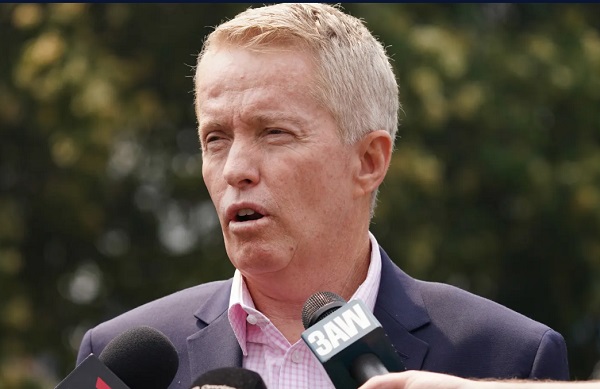
Q. If there is just one thing you would still want to do, what would that be?
CRAIG TILEY: There is a lot I want to still do. As far as my role with the Australian Open and Tennis Australia, we have set a five year vision of what we're going to create. I want to put that business in, before I go on to my next career option, in such a strong position that financially it's the healthiest it's ever been, that it can continue to invest in the players, not only the Australian players having an even opportunity, but the players that come to the Australian Open. That would be the first goal. That's setting all of the things we are going to do.
No. 2, I'd like us to innovate and continue to drive our venture capital fund and our innovations team to great outcomes in new tech and new tech opportunities for the sport that are transformative for the sport.
We have a lot of firsts, whether it be firsts on digital walls or firsts on how we approach the increases in prize money, first in how we approach distributions to the players. We have done a lot of firsts, would like to keep doing some firsts on that, and then transporting that even to other sports and other entertainment content.
I'd love to continue to have the Australian players really do great and get more players inside the top 100, both men and women. We have a big group of men now in there. We don't have enough women in there. Couple years ago that was different. Things constantly evolve and change.
I would love to set the organization up with a next layer of talent and leadership, absolute superstars, better than what was before them. There is a lot of work to do in the next five years. You know, I see a great opportunity for the Australian Open, for Tennis Australia, but more so I see great opportunity for the sport.
So, the last thing I'd like to say, and I'd love to do is I'd love to have a situation where the sport is acting as one and we have a premium tour that everyone is benefiting, particularly the playing group.
Q. Do you still enjoy it?
CRAIG TILEY: I love it. People say they love it, but I wouldn't say it I'm prepared to sacrifice my health, my sleep patterns because I love my job so much. I love the work that I do.
It's driven by the people, driven by the opportunity, this beautiful game. You know, I was very lucky as a kid. I fell in love with the sport. That's been my career and my journey.
People, if they get an opportunity like you, if you love a sport and you get an opportunity to work in it and to derive a living from it, jeez, I mean, how lucky is that?
So yeah, I have a great empathy and appreciation for the sport and for the people in it and the opportunity. We have a lot of infighting, but there is a massive opportunity and I think we have to focus on the prize and forget about the personalities.
Q. You just mentioned about the next career phase.
CRAIG TILEY: Yeah. (Laughing)
Q. What is the timing of that and what is in mind?
CRAIG TILEY: Look, you know, I have traditionally been a person, when I started on my journey, I said, I won't be longer anyplace more than 10 years. I have been at Tennis Australia for a lot longer than that. Well, 10 years the CEO, and 6, 7 years before that. But I have had three different jobs in the organization. Unless you have really different jobs, I think it's really helpful.
So as far as the time frame is, I have never put a time frame on it. I will know the day I want to do something else. I'll wake up in the morning and call you and say, That's it. That's how quick it will be. Unless someone else makes the decision for me (smiling).
I want to see through the next stage of the strategy that we've got. I've got beau coups of energy I want to deliver to the sport. Got a lot of passion for what we can create globally. I want Tennis Australia to own some more assets that we're looking at globally, as well, and to keep transforming the business.
Yeah, so there is a lot to do, which I want to continue to be a part of. As long as I keep having the energy for it and people enjoy having me there and people feel like they're getting the right leadership and right development, then it could be forever.















